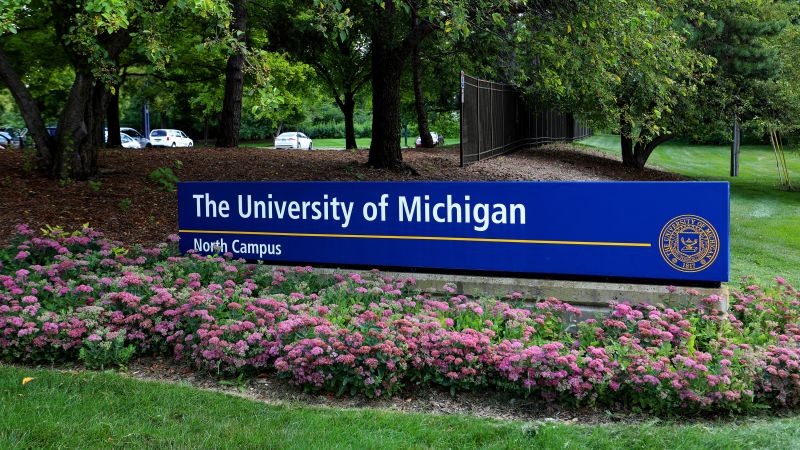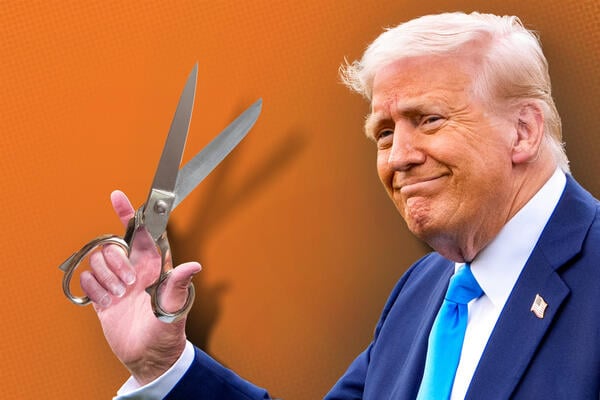University of Michigan Ends DEI Program Citing Trump Executive Order

The University of Michigan is set to dismantle its Diversity, Equity, and Inclusion (DEI) program, a decision reached after extensive discussions regarding potential modifications to these initiatives. These discussions ignited significant protests from hundreds of students, staff, and faculty last year. The university intends to close both its central Office of Diversity, Equity and Inclusion and the Office for Health Equity Inclusion. Furthermore, the DEI 2.0 strategic plan, which outlined the university's diversity initiatives through 2028, will be discontinued.
In tandem with these closures, the university plans to reallocate funds towards bolstering financial aid and mental health resources for students. University attorneys will also conduct a comprehensive review of all policies, programs, and practices to ensure compliance with federal law and guidance. Additional funds will be directed towards enhancing advising and counseling services, as well as implementing “innovative approaches” such as a personalized AI assistant for every member of the university community. Investments will also be made in maintaining student common areas and supporting cultural and ethnic programs.
In a joint statement, University President Santa J. Ono and other university leaders acknowledged the weight of these decisions, stating, “These decisions have not been made lightly. We recognize the changes are significant and will be challenging for many of us, especially those whose lives and careers have been enriched by and dedicated to programs that are now pivoting.”
This decision follows a broader trend spurred by former President Donald Trump's executive order banning DEI programs, which compelled agencies to align with the White House’s policies. Moreover, the Department of Education threatened to withhold federal funding from academic institutions engaging in DEI initiatives, leading many to remove DEI references from their websites, shut down programs, and, in some cases, lose scholarship funding.
Historically, many DEI initiatives have been lauded for their positive impact. Studies have indicated that college students exposed to greater diversity exhibit higher levels of cultural awareness and political participation. However, the university’s decision reflects a shifting landscape in higher education, influenced by legal and political pressures.
According to Kay Jarvis, director of public affairs, the university will reallocate funding away from administrative functions and toward student-facing initiatives. These initiatives are designed to directly enhance student success and foster a sense of belonging for all members of the university community. The decision, according to the university, is the result of months-long discussions among university leadership and the board of regents, particularly in light of executive orders and federal guidance that have broadly criticized DEI programs.
The University of Michigan faced considerable scrutiny last year over potential rollbacks in its DEI initiatives, with hundreds of students and faculty protesting in December amid concerns that the board of regents was planning to defund the program entirely. Thousands of individuals also signed a petition in defense of the DEI program.
The joint statement from President Ono and other university leaders highlighted the “important progress” made since the launch of the DEI strategic plan in 2016, including a 46% increase in first-generation undergraduate students, which they attributed, in part, to the success of the diversity programs. However, the statement also acknowledged that some members of the university community felt excluded from DEI initiatives and that the programming fell short in fostering connections among diverse groups.
During the winter rallies opposing changes to the program, speakers from various backgrounds emphasized the importance of DEI, sharing personal anecdotes about how DEI has positively impacted their lives, according to University of Michigan professor Kevin Cokley, who also serves as the associate chair for diversity initiatives.
While the board of regents did not vote to defund the program at a December 5 meeting, they did agree to roll back the requirement for faculty to submit diversity statements as part of hiring, promotion, and tenure processes, following a recommendation from an eight-member faculty group. As part of the new actions, the use of diversity statements will be banned universitywide, and “statements related to a person’s commitment to DEI will no longer be solicited or considered” in admissions, hiring, or other contexts.
In June 2024, Provost Laurie McCauley assigned a faculty committee to explore the use of diversity statements in faculty hiring and promotion. The committee reviewed nearly 2,000 survey responses, which revealed that most faculty members believed that diversity statements put undue pressure on faculty to express specific positions on moral, political, or social issues. The survey also indicated that slightly more faculty members disagreed than agreed that diversity statements allow an institution to demonstrate a commitment to diversity, equity, and inclusion by cultivating DEI in the faculty.
In a November 27 letter to deans, McCauley addressed concerns within the community regarding the state of DEI at the university, clarifying that claims that the university was considering fully defunding these types of programs were incorrect.











